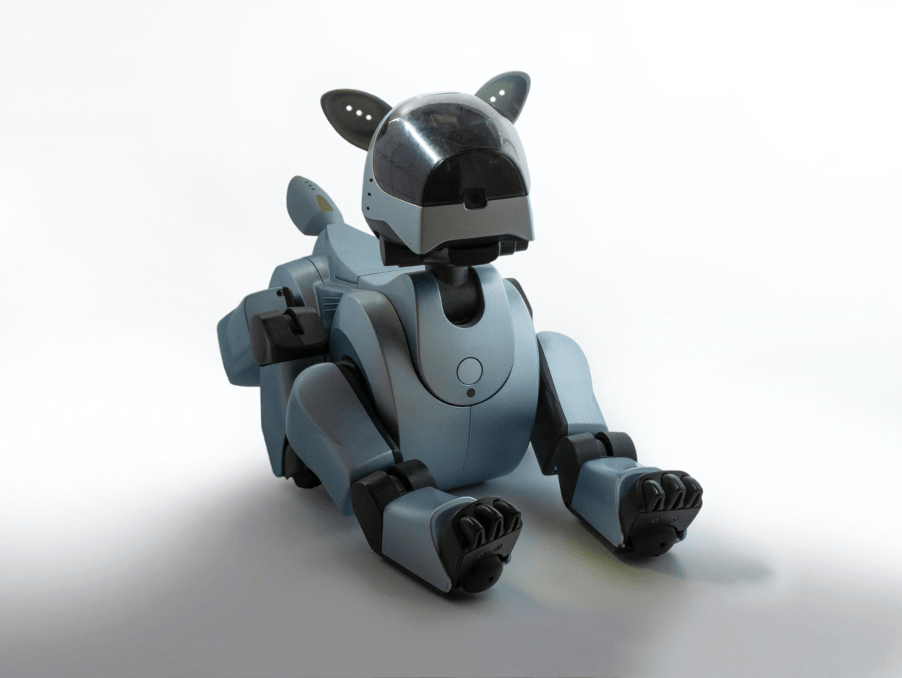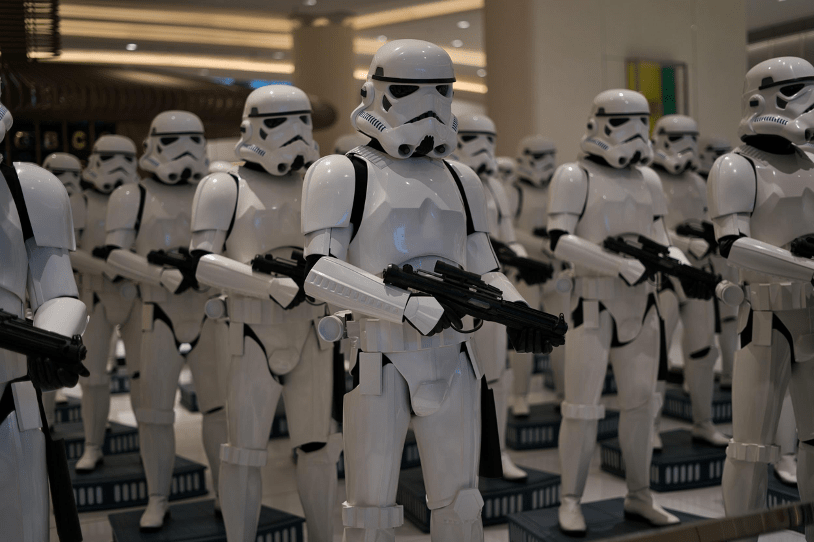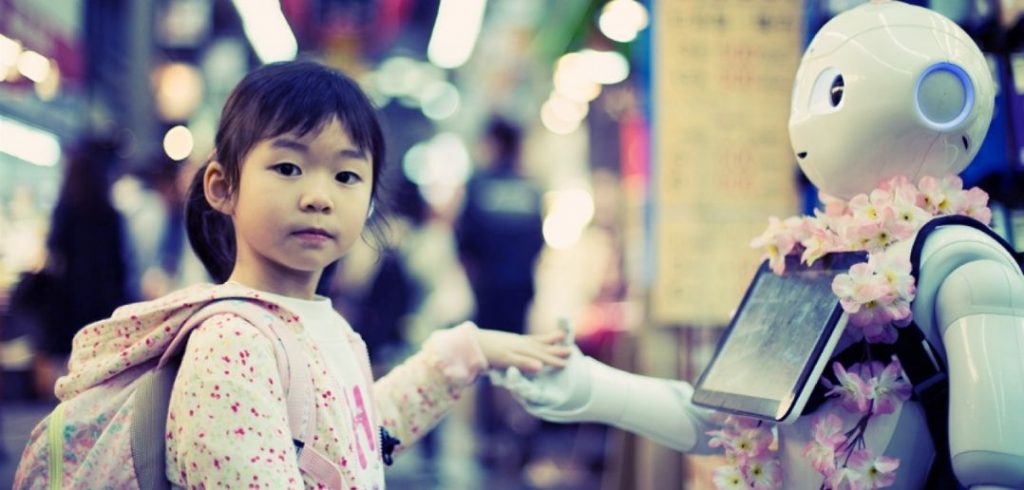Artificial intelligence is an emerging technology that is currently in high demand. The reason for this is simple, thanks to Artificial Intelligence the tasks that normally require human intelligence, such as visual perception, speech recognition, and others can be performed by computer systems. Which is usually much faster and cheaper for a company.
In the nearest future, the AI field is expected to grow and change our everyday reality. We have collected 5 surprising and somewhat disturbing facts about AI and the way it influences our lives.
AI specialists are offered outrageously high salaries
According to The New York Times research, typical AI specialists, including both Ph.D.s fresh out of school and people with less education and just a few years of experience, can be paid from $300,000 to $500,000 a year or more in salary and company stock.
If we speak about well-known specialists in the A.I. field, here the compensation in salary and shares in a company’s stock goes up to single- or double-digit millions over a four- or five-year period.
You may be wondering why AI salaries are rising so high. Here are a few factors that let the industry offer high salaries.
First of all, it’s that there is a competition between different industries, for example, the auto industry is competing with Silicon Valley for the same experts who can help build self-driving cars. Besides, tech companies such as Facebook and Google also have money to spend on solving problems like building digital assistants for smartphones and home gadgets and spotting offensive content.
On the other hand, a shortage of talent also makes big companies land as much of it as they can. The statistics show that in the world, fewer than 10,000 people have the skills necessary to tackle serious artificial intelligence research. Which means that the profession of an AI engineer is in high demand and with rather low competition. So the quarantine can be a great chance to get the profession of an AI engineer and dramatically increase your income.
All AI assistants are female
If you have ever talked to a virtual assistant you will immediately remember that its default voice is female. Google Assistant, Siri, Cortana, Amazon’s Alexa are all females. But why is that? The thing is that studies have shown that both males and females like the sound of women’s voices a bit better compared to male voices.
According to Karl Frederic MacDorman, a computer scientist and expert in human-computer interaction at Indiana University-Purdue University Indianapolis another reason why a female voice is usually chosen is that mostly men work on AI and the majority of them find females attractive and want their AI to follow suit.
Anthropologists say that female AI would be less threatening than male, for example, you can compare Samantha in Her with Terminator machines.
The prevalence of feminized machines is quite alarming as it makes to perceive women as helpers always ready to answer any question on demand. And this is an important ethical question of how biased society is.
Compare the simple tasks these virtual assistants are asked to perform with a question-answering computer IBM Watson which is used to play the US quiz show Jeopardy and make complex business decisions. While all assistants have females voices, Watson has a masculine voice.
AI pets can soon replace real ones

Scientists believe that by 2025 they will be able to produce AI pets that can establish an emotional connection with people. As the world gets more populated this can be the most viable option for the majority of people as only very reach people will be able to afford real live pets.
Pet-bots won’t only be a cheaper option, but they will also be easier to take care of. You do not need to feed them and do not need to worry who will do it when you are away. Going on holiday? Just switch them off. They need no grooming, regular walks and if they get injured, they can be easily fixed.
Do not forget about people who are allergic to cats, dogs, and other animals. A bot-pet can be a real way out for them as they need to fight loneliness and anxiety too. The statistics say that around 12% of the world population is allergic to pet hair or certain animals like cats or dogs.
While allergy shots can be expensive and not really effective, investing in a robot pet instead of a real one might seem like not the worst option.
Besides, robot pets prove to be more “gifted” than real ones. This means they can learn tricks and behaviors faster than real animals. So you won’t have to spend weeks or even months to teach your dog to bring you the ball, instead, it will take a few minutes.
AI can be a fierce poker player
A big step in the evolution of AI was when the IBM computer beat the champion, Garry Kasparov, in a chess tournament in 1997.
In 2015 a computer called Claudico competed in a poker tournament at a Casino in Pittsburgh. During 2 weeks 80000 hands were played. In the end, Claudico was the fourth. Though it didn’t win it was a huge step in AI computing.
The major difference between a game like poker and, for example, chess is that poker involves a lot of missing information, and bluffing is its main strategy. In other words, it’s not a purely logical game, so in this respect, a computer demonstrated a truly human behavior.
The Claudico algorithm is now applied in other spheres that deal with missing information, such as cybersecurity, medicine, and negotiations.
AI can be threatening

No doubt that AI makes our lives easier, safer, and more comfortable. However, it also poses a number of threats to humanity. Top scientists and technologists like Stephen Hawking, Bill Gates and Elon Musk have serious concerns about what development of AI can lead to.
A physicist Max Tegmark compared the development of AI with nuclear weapons. There has already been a push to slow down the development of AI. Scientists recommend focusing on containment. Containment is extremely important if we are to lose control of AI we may never get it back. And then it’s just a matter of time when AI could wipe out humankind.
The most obvious threats are that AI will replace humans in their jobs, get hold of weapons, and can cause discrimination.
Stephen Hawking believed that in the nearest future AI systems will make many jobs disappear. Here is what he said:
“The automation of factories has already decimated jobs in traditional manufacturing, and the rise of artificial intelligence is likely to extend this job destruction deep into the middle classes, with only the most caring, creative, or supervisory roles remaining.”
<…>
“Humans, who are limited by slow biological evolution, couldn’t compete, and would be superseded.”
The technology entrepreneur Elon Musk has warned that AI could at a certain step become dangerous to people. He is mainly concerned about AI-controlled weapons and insists on banning any type of autonomous weaponry. We can never be sure if the AI is using the right criteria in defining against whom to use those weapons.
Moreover, everyday machines collect so much data about each of us. They track and analyze it for the sake of numerous companies that strive to sell us their goods. It is possible that one day the machines together with other people can use this information against us. Imagine that your “social credit score” does not let you get the job that you want or travel to the places further than 50 miles from where you leave. It has already become a reality for many of the Chinese people.
Final thoughts
Today AI is present in almost all spheres of our daily lives. It plays an important role in preventing crimes with face-recognition algorithms. AI makes self-driving cars a reality. With the help of Artificial Intelligence machines can diagnose, analyze, and predict the various types of diseases, and monitor the patient’s health conditions.
However, the speed with which the AI sphere develops poses a number of ethical and practical questions. Such as if humankind is safe enough, or if measures should be taken to constraint the AI technologies. Will this sphere create the same number of jobs as it will eliminate as a result? What will happen when, as predicted, by 2045 AI will surpass the human level intelligence at the fullest level?
